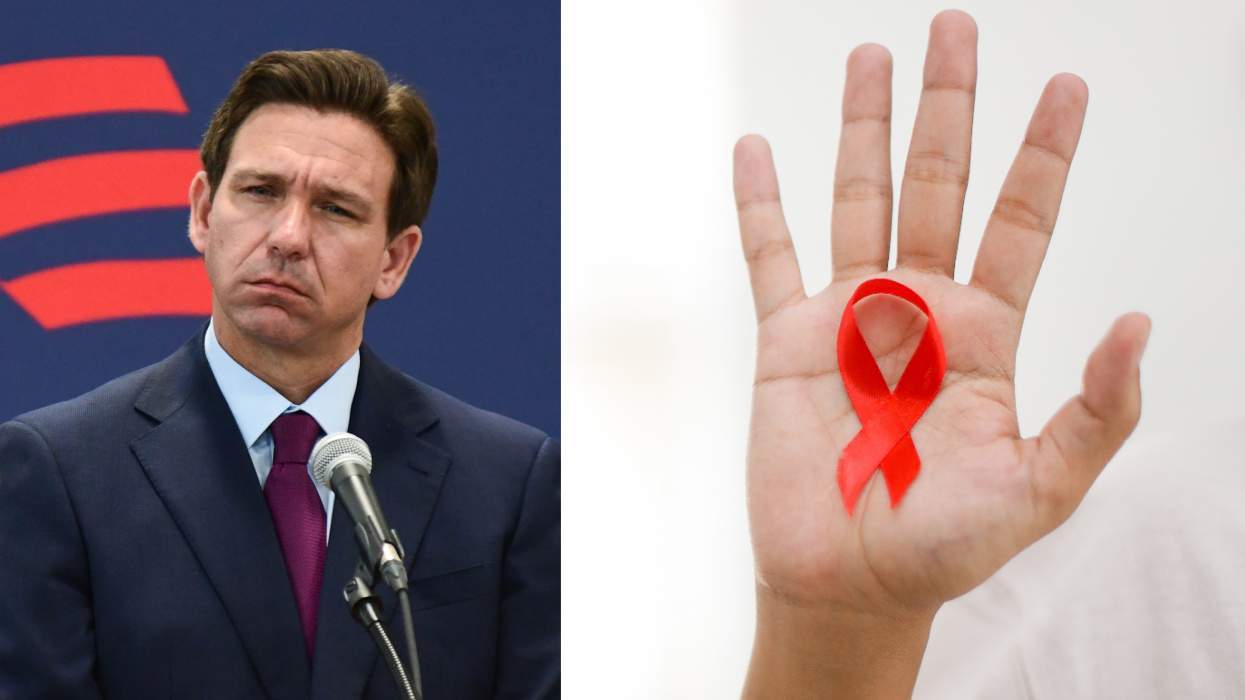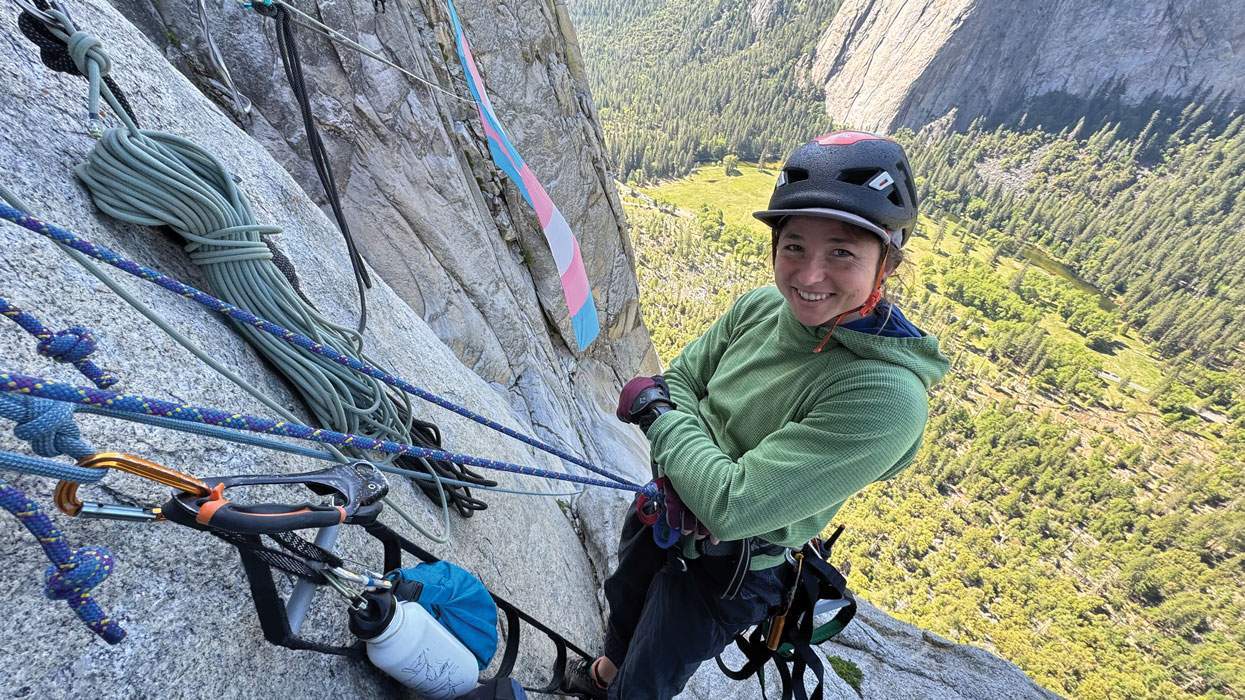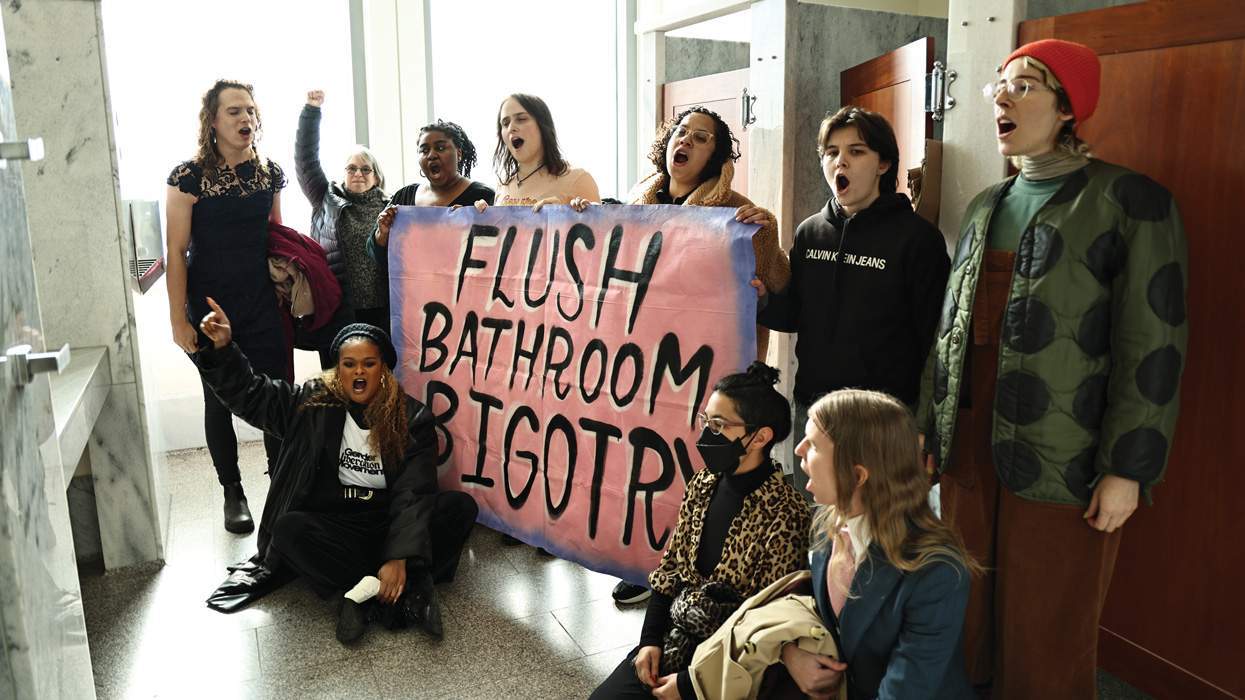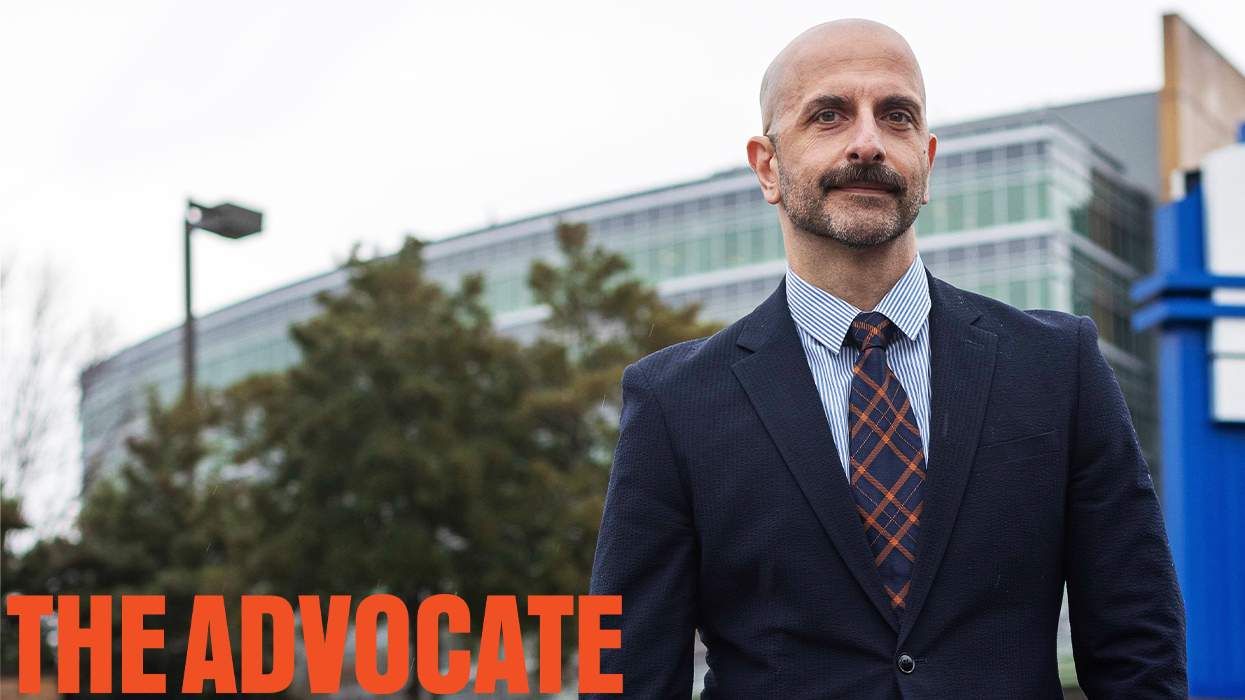As a folk musician and transgender activist, Mya Byrne has been paving the way for queer artists in Nashville. The singer-songwriter recently spoke to The Advocate about the progress of LGBTQ+ individuals in the Americana scene, and how coming out completely changed her career.
Byrne recently became the first transgender woman featured in Rolling Stone Country. Though she gushed about how it feels to be "above the fold," she admitted she "was not expecting to get the lead."
As a country musician who has been active since 2003, Byrne is no stranger to the discrimination against queer individuals in Americana.
"It's still a hard place to exist," she says. "Trans women - we've got a glass ceiling too, but it's safety glass. I feel like [the Rolling Stone Country piece] really put a crack in the armor."
Byrne entered the professional music scene in 2003, where she became acquainted with queer artists in folk, rock, and even country. Despite LGBTQ+ creators having historic influences in the genres, the reinforcement of heteronormativity and cisnormativity in the scene made her "afraid" of being queer.
"I didn't know what being queer really meant," she shares. "I wouldn't allow myself to be queer."
The toxicity of the culture delayed Byrne's acceptance of herself as transgender. She says that at the time, being queer in the country scene was "like the kiss of death."
"A lot of the queer people I knew in music were pigeonholed into doing queer shows or queer showcases and they were trying to break through," she explains. "The folks that I knew who were gay in the music scene were not out. It felt threatening, and I didn't feel like there was a place for me."
Byrne did not come out as a trans woman publicly until 2014, though she shares that she came out to herself in 2012, a decision that completely changed her artistic journey nearly a decade into her career.
She recalls always searching for "something" in her earlier songs. When Byrne came out, the piece of her that was anxious went away, and life went from "blurry to technicolor." Finally, she was able to fully develop her songwriting.
Byrne explains: "When people come out, not only is it a political act, it's also modeling for other people what they can be. So, for me, what really changed in my music was the fact that I was no longer searching for something I didn't know. I started to become a more observational songwriter. It's made me a better songwriter."
Throughout her career, Byrne has never shied away from her country roots. She grew up on music genres from punk rock to Memphis soul, eventually blending into her Americana sound.
"I think Americana is kind of a catch-all for stuff that doesn't fit into those [country and folk] categories," she says. "Kind of like the transgender umbrella. It's who I am."
Unfortunately, the country music scene is often permeated with conservative voices. Byrne explains that while the genre originally developed in the early 20th century as a voice for rural communities and beyond, rooted in the music of Appalachia, the country aesthetic shifted during the 1950s in response to rock 'n' roll, which was widely seen as the progressive movement of the time. This change has carried into the contemporary scene.
"Modern country music, and this sort of 'being poor is good enough' and 'root where you're planted' attitude, it's all based in this idea that we have to 'preserve our heritage," Byrne elaborates. "Where have we heard that before?"
According to Byrne, country was never meant to reflect a moral purity movement, but the struggles of the working class, something she believes queer people can relate to.
"Real country music is about revolution," she says.
Despite its leftist roots, transgender artists have been alarmingly unwelcome in the Americana scene. Just last month, Brittany Aldean, wife of prominent country musician Jason Aldean, made headlines for a transphobic Instagram post.
While Byrne is disappointed by the rhetoric, she does not believe Aldean to be the voice of the genre. She says that Maren Morris, the singer-songwriter who called out Aldean's bigotry and subsequently raised thousands for the Transgender Lifeline, is the true success. Though, it's "unfortunate" that Aldean's transphobic bigotry was widely painted as a "feud" between her and Morris, who Byrne praises as a "genuine ally."
"What are people like Brittney Aldean scared of?" Byrne asks. "They're scared of losing the status quo, and that has been the story of 'mainstream' country music for a long time, which is 'don't come in here and try to steal our thing.' And that's unfortunate."
Byrne is one of the first transgender artists to play AmericanaFest in Nashville, though she never received an official invitation to perform. Instead, fellow musicians platformed her on official AmericanaFest events after Byrne was explicitly rejected from playing the festival as a featured performer.
"They said in their rejection letter, 'We do not have space for you,'" she shares. "They used those words."
Byrne says that ever since states began passing policies that crack down on transgender visibility and healthcare, finding work has been near impossible for trans artists. She shares that the hardest part for her is simply "making ends meet."
Transgender people cannot constantly champion themselves, Byrne asserts - they need support. Not just from the public, but from fellow artists.
"What it's really going to take is for one of these artists who has a lot of status to put a trans woman onstage as an equal. As a peer. And champion them," she says. "That's really what needs to happen right now. If we don't put trans people up front and center and say, 'I stand with this person,' then we don't have that visibility."
















Charlie Kirk DID say stoning gay people was the 'perfect law' — and these other heinous quotes
These are some of his worst comments about LGBTQ+ people made by Charlie Kirk.